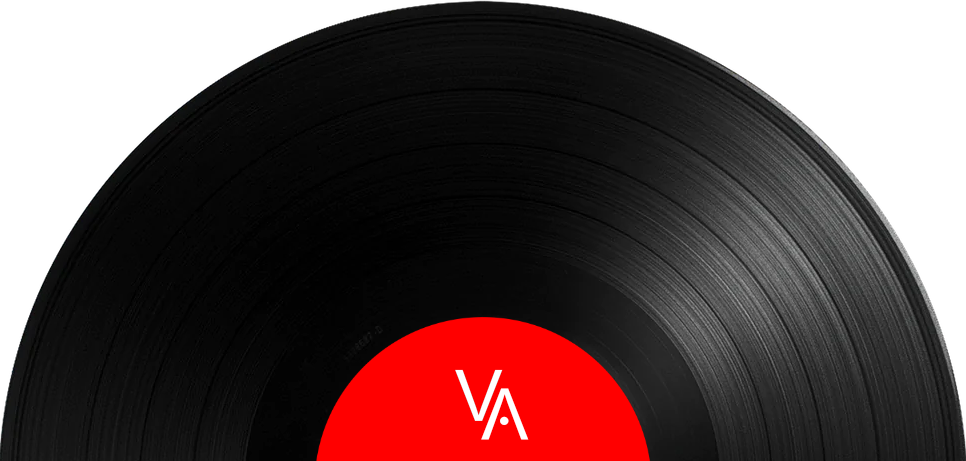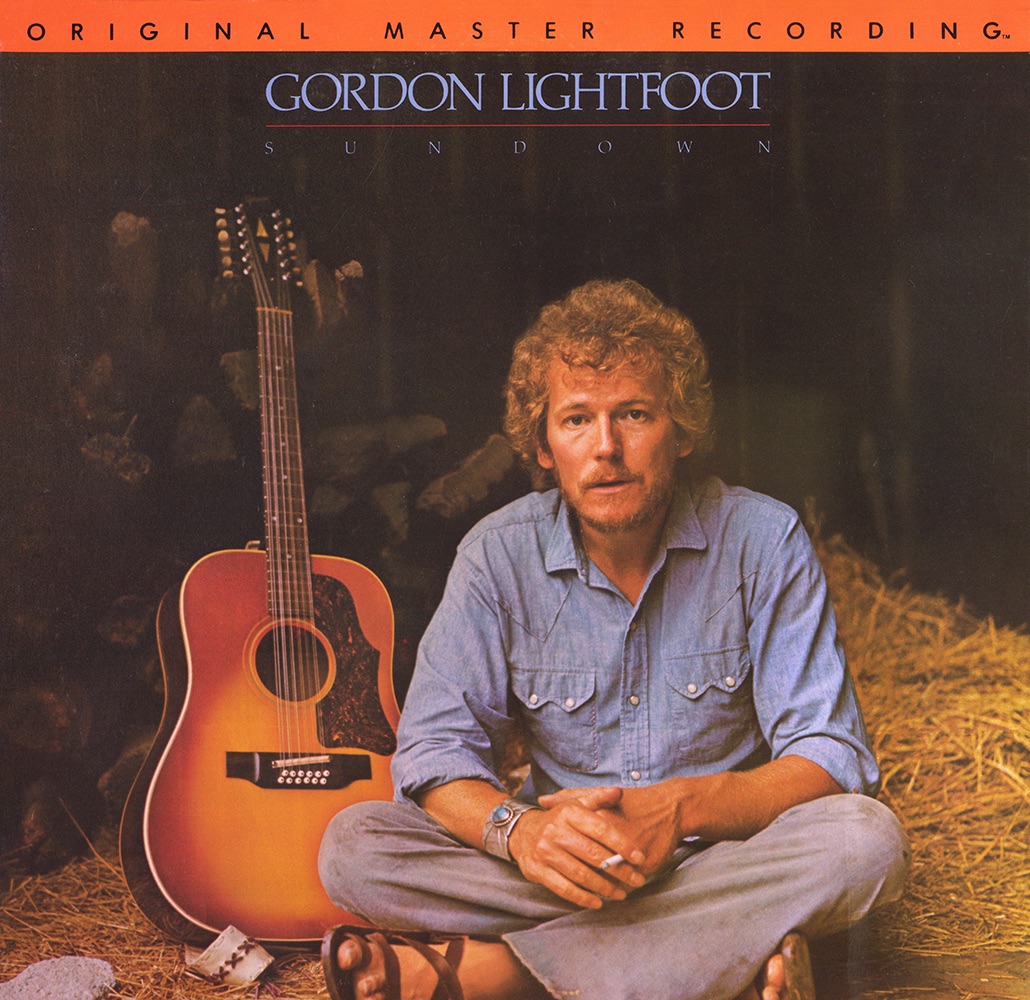
Sundown is Gordon Lightfoot's 10th album, released in 1974. It reached number one on the US pop chart, the only album of his to do so. In Canada it rose to the top of the RPM 100 and stayed there for five weeks.
It really is a great album. It represents the "Lightfoot sound" that was so recognizable at the time. Lightfoot was at the peak of his songwriting prowess when this record was released. But it was the beginning of the end, as far as that classic Lightfoot sound went. It would be one of the last Lightfoot records to sound so … well … Lightfoot.
Beyond this record he would try other approaches, often employing electric and electronic instruments, but the results were varied and - in my opinion - nothing like a real Lightfoot record. He'd occasionally touch on the old sound - there are songs in his later catalogue that would have probably been more at home on an earlier album - but he'd never again embrace that sound so fully. It was as though he was bored and was looking for a new, more modern sound.
I remember being so disappointed a few years later when Endless Wire appeared. It seemed a floundering effort, as though Lightfoot was having difficulty writing new Lightfoot songs. This may have had something to do with his drinking and drug use, which was rising to legendary status in the 1970s, or it might be that he was just tired.
Sundown was - still is - a great Lightfoot record. It produced the hits Carefree Highway and the title track, the latter reaching number one on both the pop and contemporary music charts. While 1975's followup, Cold On The Shoulder, would yield Rainy Day People and All The Lovely Ladies - and 1976's Summertime Dream would give us the excellent title track and Race Among The Ruins - they would otherwise be filled with lesser songs and then followed by the aforementioned Endless Wire, which is really just an OK record despite a couple of toe tappers hidden in the grooves somewhere.
That record - Endless Wire - opens with Daylight Katy, which I don't think can be ranked up there with Gord's really great compositions and is a disappointing lead-in for a Lightfoot album. It sets a tone that doesn't promise much, and then doesn't deliver much, either. Endless Wire doesn't even begin to approach Sundown in listenability, despite containing Songs The Minstrel Sang and - maybe - The Circle Is Small.
But, as I've already stated above a couple of times, this record is great, and the treatment Mobile Fidelity gave it - which is the pressing I have - is nothing short of wonderful. It's one of the earliest MoFi releases - number 18, I think - and you can still find it for a decent enough price, somewhere between $50-100 for a nice, clean, used copy. They're not plentiful, but they do exist.
The song Sundown is a dark tune about romantic obsession. He’s signing about himself being fixated on possessing the woman in the song, and he alludes to getting drunk in order to feel better. There's a level of danger in that because who knows what he would do if he got drunk enough, especially since he's worrying about catching someone creeping up - or down - his back stairs.
In other circumstance, this could have been a murder ballad.
When the song was recorded Lightfoot had been divorced for about a year or so, but unlike what so many people assumed at the time the song isn't about his ex-wife. It's about his affair with uber-groupie Cathy Smith, who would later gain notoriety as the woman who administered a lethal speedball of cocaine and heroin to John Belushi. She would eventually serve time in prison for that misdeed, and while the details surrounding her time with Belushi may fade over the coming decades she will always be immortalized in song as the woman who made Gordon Lightfoot jealous enough to write about it.
And Lightfoot really was a jealous guy. He is said to have fired an opening act because he thought they were flirting with Smith. He would later call Smith “the one woman in my life who most hurt me,” but it's probably more the other way around. He also maintains he could have (should have?) married her, although one has to wonder how long that union would have lasted and, perhaps more importantly, how it might have ended.
Sundown is both a pretty and ugly song. If you don't listen to the words you won't hear the ugliness, and without that insight it's just a pretty song. But that's also why it works so well. It draws you in with a promise of sweetness before it rips you apart and devours you. You go in willingly, but you come out thinking you've had a lucky escape.
Over the years I've seen Lightfoot perform 21 times, the first being in 1978, at Massey Hall. The last time I saw him perform was in 2012, in Stratford, but a lot had changed in the intervening years. His voice was shot and the songs suffered because of it. It was sad to watch because I could remember how incredible it used to be sitting in a Lightfoor audience. He signed an album cover for me that night in Stratford, an original copy of his debut LP.
This is one of Lightfoot's best records and it follows a series of equally great releases that, combined, helped establish his distinctive sound and songwriting ability. He's a completely different man now. I wonder how he feels as he sings these songs from so long ago. Cathy Smith is dead and gone. Is he still jealous? This record is, of course …
Sundown is Gordon Lightfoot's 10th album, released in 1974. It reached number one on the US pop chart, the only album of his to do so. In Canada it rose to the top of the RPM 100 and stayed there for five weeks.
It really is a great album. It represents the "Lightfoot sound" that was so recognizable at the time. Lightfoot was at the peak of his songwriting prowess when this record was released. But it was the beginning of the end, as far as that classic Lightfoot sound went. It would be one of the last Lightfoot records to sound so … well … Lightfoot.
Beyond this record he would try other approaches, often employing electric and electronic instruments, but the results were varied and - in my opinion - nothing like a real Lightfoot record. He'd occasionally touch on the old sound - there are songs in his later catalogue that would have probably been more at home on an earlier album - but he'd never again embrace that sound so fully. It was as though he was bored and was looking for a new, more modern sound.
I remember being so disappointed a few years later when Endless Wire appeared. It seemed a floundering effort, as though Lightfoot was having difficulty writing new Lightfoot songs. This may have had something to do with his drinking and drug use, which was rising to legendary status in the 1970s, or it might be that he was just tired.
Sundown was - still is - a great Lightfoot record. It produced the hits Carefree Highway and the title track, the latter reaching number one on both the pop and contemporary music charts. While 1975's followup, Cold On The Shoulder, would yield Rainy Day People and All The Lovely Ladies - and 1976's Summertime Dream would give us the excellent title track and Race Among The Ruins - they would otherwise be filled with lesser songs and then followed by the aforementioned Endless Wire, which is really just an OK record despite a couple of toe tappers hidden in the grooves somewhere.
That record - Endless Wire - opens with Daylight Katy, which I don't think can be ranked up there with Gord's really great compositions and is a disappointing lead-in for a Lightfoot album. It sets a tone that doesn't promise much, and then doesn't deliver much, either. Endless Wire doesn't even begin to approach Sundown in listenability, despite containing Songs The Minstrel Sang and - maybe - The Circle Is Small.
But, as I've already stated above a couple of times, this record is great, and the treatment Mobile Fidelity gave it - which is the pressing I have - is nothing short of wonderful. It's one of the earliest MoFi releases - number 18, I think - and you can still find it for a decent enough price, somewhere between $50-100 for a nice, clean, used copy. They're not plentiful, but they do exist.
The song Sundown is a dark tune about romantic obsession. He’s signing about himself being fixated on possessing the woman in the song, and he alludes to getting drunk in order to feel better. There's a level of danger in that because who knows what he would do if he got drunk enough, especially since he's worrying about catching someone creeping up - or down - his back stairs.
In other circumstance, this could have been a murder ballad.
When the song was recorded Lightfoot had been divorced for about a year or so, but unlike what so many people assumed at the time the song isn't about his ex-wife. It's about his affair with uber-groupie Cathy Smith, who would later gain notoriety as the woman who administered a lethal speedball of cocaine and heroin to John Belushi. She would eventually serve time in prison for that misdeed, and while the details surrounding her time with Belushi may fade over the coming decades she will always be immortalized in song as the woman who made Gordon Lightfoot jealous enough to write about it.
And Lightfoot really was a jealous guy. He is said to have fired an opening act because he thought they were flirting with Smith. He would later call Smith “the one woman in my life who most hurt me,” but it's probably more the other way around. He also maintains he could have (should have?) married her, although one has to wonder how long that union would have lasted and, perhaps more importantly, how it might have ended.
Sundown is both a pretty and ugly song. If you don't listen to the words you won't hear the ugliness, and without that insight it's just a pretty song. But that's also why it works so well. It draws you in with a promise of sweetness before it rips you apart and devours you. You go in willingly, but you come out thinking you've had a lucky escape.
Over the years I've seen Lightfoot perform 21 times, the first being in 1978, at Massey Hall. The last time I saw him perform was in 2012, in Stratford, but a lot had changed in the intervening years. His voice was shot and the songs suffered because of it. It was sad to watch because I could remember how incredible it used to be sitting in a Lightfoor audience. He signed an album cover for me that night in Stratford, an original copy of his debut LP.
This is one of Lightfoot's best records and it follows a series of equally great releases that, combined, helped establish his distinctive sound and songwriting ability. He's a completely different man now. I wonder how he feels as he sings these songs from so long ago. Cathy Smith is dead and gone. Is he still jealous? This record is, of course …



